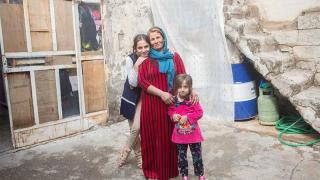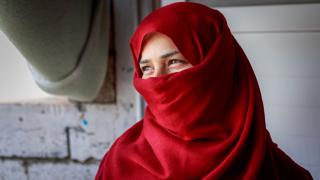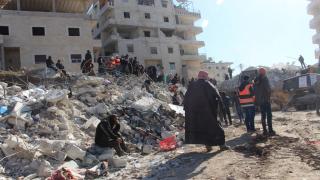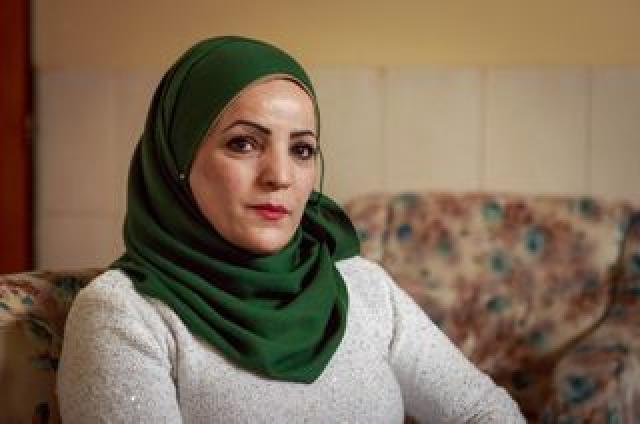A Childhood in Wars: 20 Years of Unrest in Iraq
20th March 2023 marks 20 years since the beginning of the war in Iraq
Apprehension and uncertainty.
These are the feelings that arise for Kavin Mirteekhan, a Programme Manager at our office in Iraq, as she recalls evacuating her home with her family amid the Iraq War, an experience which left a “profound psychological impact.”
Her family’s forced displacement in a bordering village meant that she and her sibling were unable to continue attending school. The war also created a “significant” economic impact, as her family members were forced to leave their jobs and rely solely on their existing resources.
“It was an unsettling period, as we were unsure if we would ever be able to return home and resume our normal lives,” Kavin says.
War, Genocide and Political Instability
The war in Iraq began in 2003, commencing the “broad and concerted” campaign by the United States military to locate weapons of mass destruction and end the dictatorship of Saddam Hussein. Between 275,000 and 306,000 deaths were estimated in the war’s aftermath.
ISIS rose to power following the withdrawal of US troops in 2011, seizing control of regions in Iraq and Syria and targeting ethnoreligious groups for genocide. Yezidi women were targeted for sexual violence, with over 6,000 abducted and forced into sexual slavery. 2,800 are estimated to still be missing. Over 5,000 Yezidi men and women of advanced age were brutally murdered and left in mass graves.
2,500 troops were redeployed for an “advise and assist” mission to combat ISIS’ insurgency. Political instability followed the insurgency, with clashes between civilians and government forces transpiring over differing political parties after the Iraqi government regained control over ISIS in regions across the country.
After ISIS, Women Pursue Freedom
Now, Kavin holds a bachelor’s degree in English and supports Syrian refugees and the women targeted during ISIS’ control as a Programme Manager in Iraq. She is also a mother concerned about the impact of the ongoing conflict on her children's lives.
The war has already had a significant impact on my life and my community, and the thought of it continuing for another two decades is concerning.
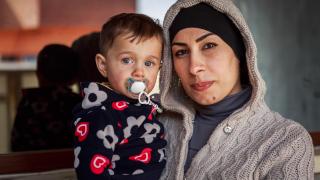
Women for Women International in Iraq
Women for Women International began operating in Iraq in 2003 and has since seen thousands of women receive support through our network. They receive skills training in business, vocational knowledge, and join a network of support around the country.
Though the political and economic conditions of Iraq remain unstable, women are relying on their training to achieve financial independence and embrace their rights amid high levels of poverty and violence against women.
"When you visit [the Kurdistan Region of Iraq], you just see destroyed houses that have been attacked and sawn,” says Aram Shekerm, Country Director of Iraq. “It is so amazing to see that women are rebuilding their lives. Women play an important role in rebuilding their lives and that’s why we are supporting them.”
Last year, Yezidi women survivors gathered for a Solidarity Circle, created through our partnership with Nadia’s Initiative to aid their healing process. The Solidarity Circle convened around when the Nineveh Plains region in Iraq was liberated from ISIS forces, allowing us to expand our programming in the region.
“I really see the change among the women, the way they are connected to each other, the support they are provided, they feel that there is a home,” says Khalida Lazgreen, who is Yezidi and works as a Programme Officer. “They feel that we are sisters together, they get courage, they get support from us.”
As of 2022, over 24,000 Iraqi women have participated in our programming in the KRI and Nineveh Plains regions.
Through the training, I have learned good sewing skills, and my plan after graduation is to work as a tailor for my family and my community,
says Sameera, who joined the Stronger Women, Stronger Nations Programme in the KRI after a friend encouraged her.
“I’m thankful to Women for Women International for providing a programme like this for refugees.”
"It’s Time to Reconstruct this Country”
At the 20-year mark of the Iraq War, Kavin hopes the future will bring peace and stability to Iraq as the country remains in upheaval. However, concerns loom over deep-seated tension created by “various political and ideological parties across Iraq,” and the possible resurgence of ISIS.
“There’s a real concern that conditions are ripe for a repeat of events which saw ISIS mobilising and occupying Mosul, and a land area that was home to over 4 million civilians across central and northern Iraq,” Aram wrote last year in “Tired of Conflict, Iraqis Deserve Peace as US Conflict Ends.” He added later that “Iraqis have had enough of chaos and conflict.”
“It’s time to reconstruct this country, to bring peace and the right conditions for women and marginalised groups to rebuild their lives,” he wrote.
Kavin also hopes that her children will have a peaceful childhood without the same traumatic events that she experienced during the Iraq war.
We hope for a better life for our children and pray that they won’t live their childhood in wars as we did.
read more
19 MARCH, 2020 | STYLIST
Shan Sherwan Hussein, our Economic Empowerment Manager, talks about how the courses she runs for women in our Iraq programme, equip them with the knowledge and tools they need to sustain an income.
Our CEO, Laurie Adams, reflects on meeting Raja, a courageous Iraqi woman and mother of five raising her children in a refugee camp in the Kurdistan Region of Iraq.
It’s been one week since two deadly earthquakes killed at least 36,000 people across Türkiye and Syria. Our partner, Women Now for Development (WND) tells us humanitarian aid is still not reaching war torn regions of Northwest Syria. As many as 5.3 million people in Syria have been left homeless by this disaster, according to the UN, many sleeping in subzero temperatures without food or medical attention.

